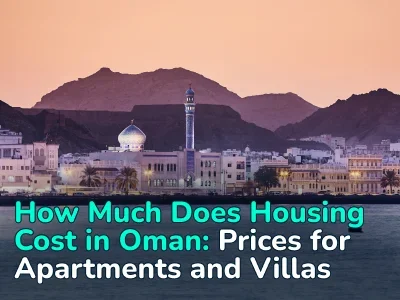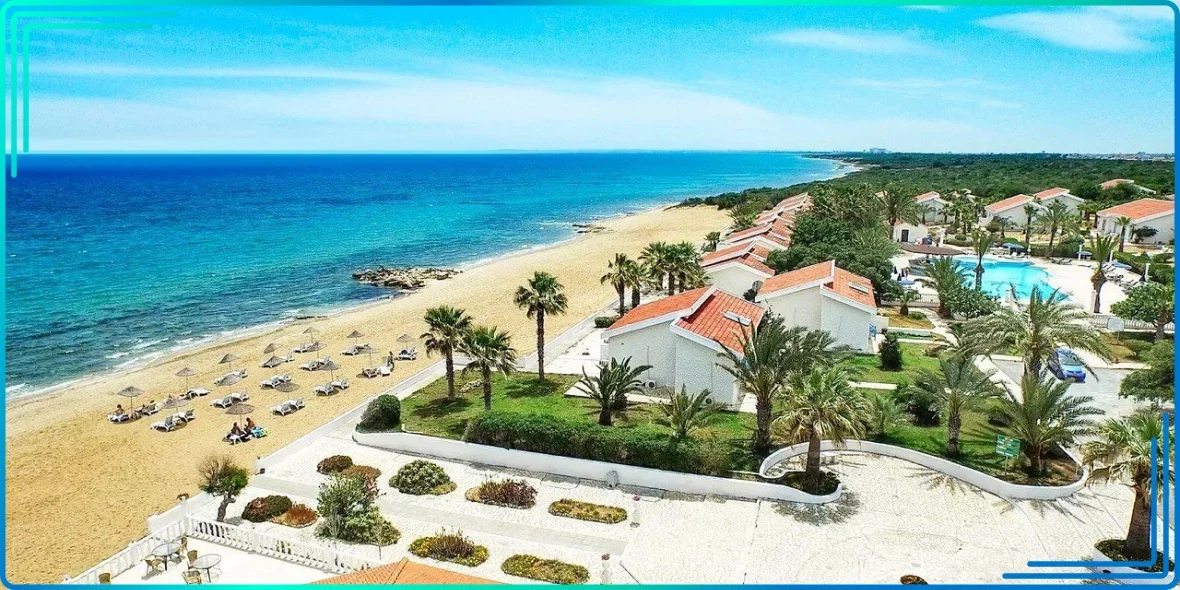
How to Buy Real Estate in North Cyprus. Property Buying Guide
The southern part of Cyprus is called the Republic of Cyprus, and the northern part is called the Turkish Republic of Northern Cyprus (abbreviated TRNC). In this article, we will talk about living in Northern Cyprus, the pros and cons of that, property taxes, how to buy real estate, and whether it is worth investing here at all.
Benefits of living in Northern Cyprus
Let's talk about the pros and cons of living in Nothern Cyprus for a long time:
Advantages
- Real estate here is cheaper than in most European countries.
- It is not difficult to obtain a residence permit (residence permit) after buying real estate.
- Low enough taxes (stamp duty: 0.5% of the property value; transfer tax for foreigners: 6% upon registration of the sale contract and 6% upon receipt of the title deed; value-added tax: 5%; capital gains tax: 2.8–4.7%; annual tax: 1.25 Turkish Liras for each square meter of covered area).
- The locals are used to living leisurely. You can relax in the frenzied rhythm of the big city.
- Warm Mediterranean climate.
- Summer lasts about eight months.
- 320–340 sunny days a year.
- Cheap fruits, herbs, and vegetables.
- Many islanders speak English and Russian.
- Contingent. Visitors are ordinary or rich tourists or investors because North Cyprus has no social program to accept refugees.
- Northern Cyprus is a secular state.
- There are a lot of historical sights.
- Good ecology: there are no big industrial productions.
- Trade is well-developed.
- There are a lot of banks.
- Developed transport infrastructure: air transportation, buses, shuttles, and sea communication.
Disadvantages
- A residence permit alone is not enough to get an official job. But this is not the main thing for you if you are an investor and/or plan only to vacation on the island and not to work.
- The territory is small, so there are few jobs. It is better to work remotely.
- Since the demand for housing is growing, the prices of secondary real estate are higher than in Eastern European countries.
- Some administrative issues may be slower simply because the locals are not used to hurrying.
- There can be bureaucratic delays in determining the owner of the land. It is better to know this in advance about possible Northern Cyprus property problems.
- Turkish banks are more expensive to service than banks in Northern Cyprus. Heaters are needed indoors in the winter.
- Some people like to see snow in winter and the colorful change of seasons. This is not the case in North Cyprus.
- It may be important for members of the green community to know that garbage is not everywhere.
- Soups are very rarely prepared in cafés. If you are a zoogean, you will have to cook your own.
- There are lots of cats and dogs on the streets. But you may like to be among animals.
- In the suburbs, there may not be a sidewalk.
- It is allowed to get behind the wheel after a few glasses of wine, but the main thing is that the alcohol in the blood does not exceed 0.22 ppm. Therefore, be careful on the roads.
- Left-hand traffic is a legacy of British colonization.
Types of Real Estate in North Cyprus
If you need advice about buying property in Northern Cyprus, we would recommend that you do some research on the real estate itself: types, features, and properties that are in demand. All in all, the types of real estate here are the same as in most countries:
- from the developer. This is primary housing (new buildings), which is rented or sold only for finishing, that is, after cosmetic repairs (as opposed to rough finishing: concrete walls, floors without screed);
- secondary real estate;
- commercial real estate (used for commercial activities, not for living: offices, stores, etc.);
- investment property (intended to receive investment in real estate in North Cyprus). It can be residential or non-residential.
If we structure the properties by form, they are: apartments, inexpensive studio apartments, penthouses, detached villas, villas in a residential complex, townhouses, and land plots.
North Cyprus Real Estate Features
As mentioned earlier, the property is ready to rent or buy after finishing. On the one hand, this is more expensive. On the other hand, it is convenient: there is no construction dust or garbage. If there is a desire, buyers can discuss with the developer options for finishing before it starts.
Since there are few cold days, there is no need for expensive central heating. In winter, of course, you will have to warm up, but this is handled by air conditioners and conventional heaters. It may be expensive, but in any case, it is cheaper than the installation and maintenance of the central heating system.
Among the important disadvantages is the lack of ventilation. In new housing, it is available, but in most apartments in Northern Cyprus, it is not. Therefore, it is necessary to ventilate the rooms so that excess moisture does not lead to mold growth. And, when it is hot, you do not want to open the windows.
In sanitary units, shower cabins are installed. Bathtubs are very rare.
English sockets are installed, but adapters to them are sold in local stores.
Solar panels are used year-round. Hot water is supplied from a boiler. During the day, it is heated by the sun, but in bad weather, the boiler has to be turned on.
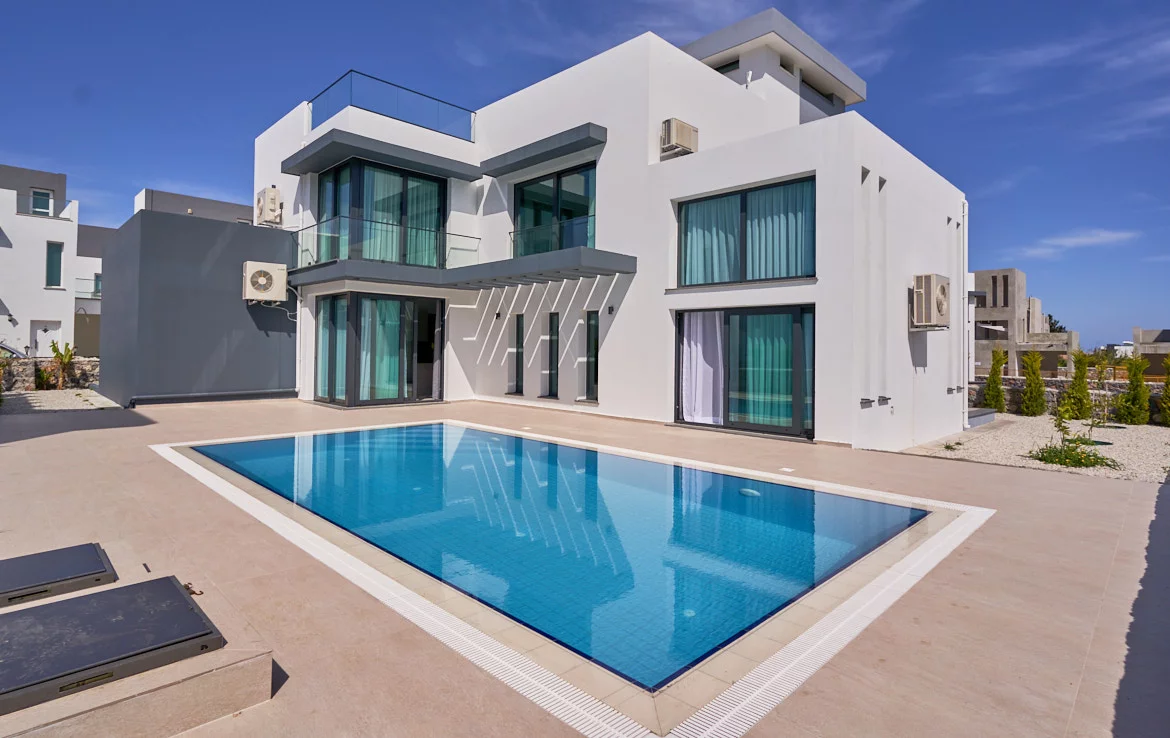
Property Taxes and Fees
Investment property in Northern Cyprus should generate income, but there are still expenses, such as taxes. Real estate is subject to taxes, some of which can be avoided if you understand the nuances. Some taxes are paid once a year; others are paid once for all time; and some taxes exist only in certain regions. In addition, in February last year, some changes were introduced, so the issue of taxation will have to be studied.
So, the annual tax must be paid once a year, and its value depends on the size of the covered area of the property. For 1 square meter, 1.25 Turkish Lira (1.25 TL) of tax is paid.
On February 10, 2023, there is a new tax, the municipal tax, which is paid in one region, Iskele (north-east of Famagusta district). The payment is a one-time payment. It is paid when buying a property.
The percentage of tax for transferring real estate from one owner to another has also increased. Now it is 6% of the value of the property (previously it was equal to 3%).
There is a new tax that concerns foreign buyers. This is a tax on the registration of the contract, equal to 6% of the value of the property specified in the contract. This tax is paid regardless of whether it is the first or second purchase of real estate.
Stamp duty is a type of state duty that is paid to register a real estate sale and purchase agreement in the land cadastre. The value of this tax is 0.5% of the value of the real estate. The tax must be paid within 21 days of signing the sale and purchase agreement. This tax is a one-off, and its rate is unchanged. If you buy a property in North Cyprus by the sea worth £120,000, it will cost you £600.
You cannot buy a property in North Cyprus without paying the transformer fee because it is a tax on the connection of utilities, without which it is impossible to use the property. The transformer fee varies from £1,500 to £3,000 and is generally payable 3 months before you receive the keys from the developer.
When buying a property in North Cyprus, you are exempt from paying capital gains tax because your purchase, although it may be an investment, is essentially an expense. This tax is paid by the seller of the property. The capital gains tax is a one-time tax. Its rate depends on whether the seller is a private individual or a professional seller.
Individuals may not pay this tax if the area of the land or house does not exceed 1 dönum (about 1000 square meters). If the area of the property is larger, a fee of 2.8% is charged on the remaining land. Interestingly, tax rates may change if there are carob or olive trees.
A professional seller must pay 4.7% of the value of the property.
Value-added tax (or VAT) is equal to 5% of the value of the property. It is usually paid three months before you receive the keys. This tax is one-time, and it is lower than in some countries, where it can be up to 20%. Perhaps this fact is offset by the lack of international legal recognition of Northern Cyprus. In any case, the political situation may change for the better, construction in Northern Cyprus continues, and you have time to think about whether you want to buy a property here.
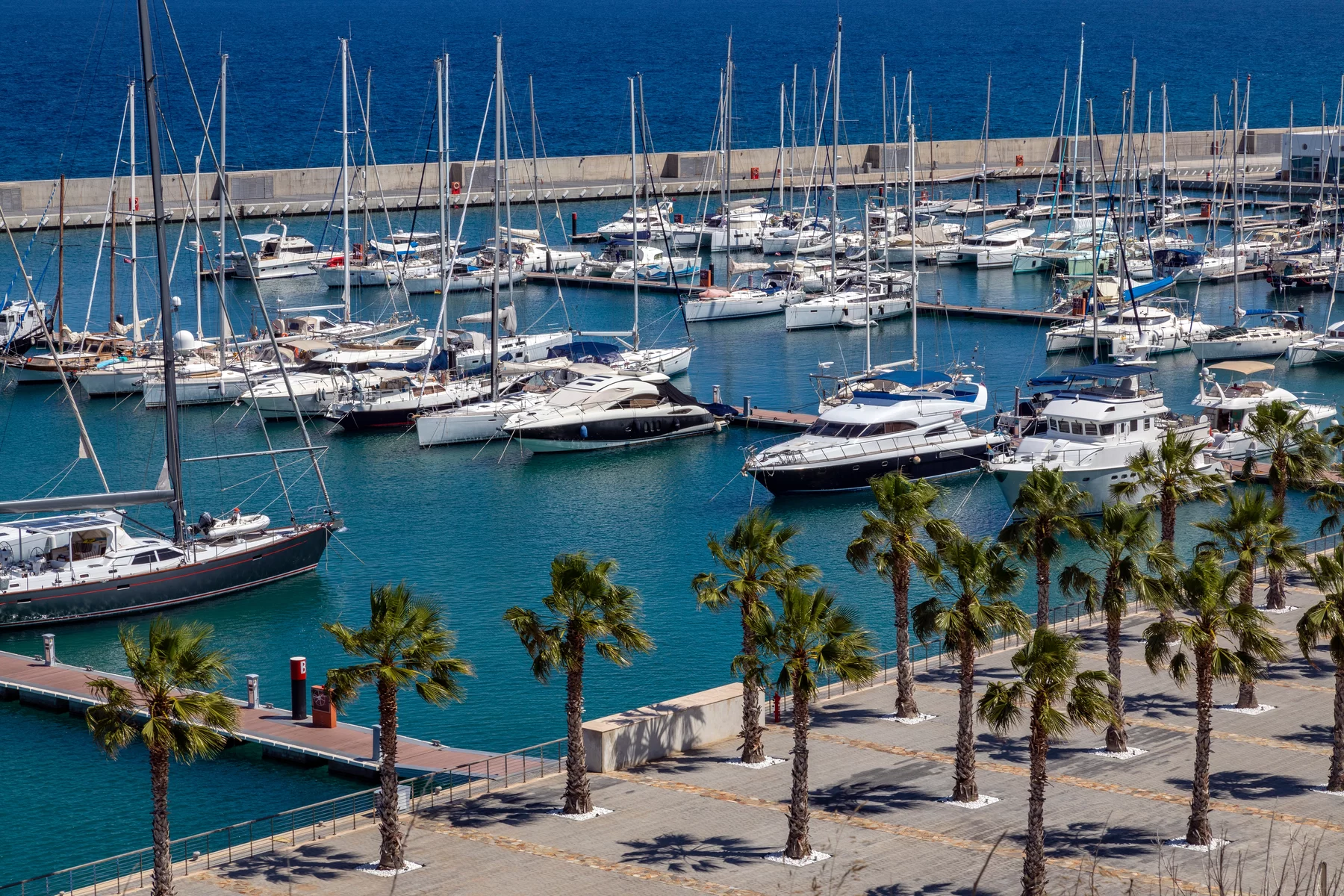
Property Title Deeds
A title is the main document that confirms ownership of real estate and the land itself. Since there is some confusion as to who owns land and property in Northern Cyprus and the status of Northern Cyprus itself, several titles are used for simplicity. These titles are tentative but give an indication of what has happened to the land before you.
The title PRE-74 means that the plot of land was owned by a foreigner or Turkish Cypriot before 1974. There can be no dispute here.
Most lands have an exchange title: before 1974, a plot of land in Northern Cyprus was owned by a Greek Cypriot who received an equivalent plot of land in the southern part of the island. That is, you can buy the plot, and the government of Northern Cyprus guarantees you that the former owner will not reclaim the property.
The Leashold title says that the land belongs to Northern Cyprus and you cannot buy it, but you can lease it for 49 years. There are few such lands.
There are also land parcels with TMD title disputes. There is no point in getting into it; just don't buy them.
The process of obtaining a title is long, and you cannot speed it up. First, the developer buys the land, draws up the necessary paperwork, and gets the title. Then the property is built, such as an apartment complex. Next, the object is built and put into operation, and the state commission issues a permit so that the developer can divide the title of the complex into titles for each individual apartment.
Title deeds cost around £500, and transferring the title into your own name costs 6% of the value of the property or 12% if you are a foreigner (changes came into effect on 01.02.2023). At the time of the COVID, the TRNC government temporarily reduced this percentage. If you decide to sell the purchased property, you will only be able to put your name on the sale contract if you have a title deed.
Loans & Mortgages in North Cyprus
If you do not have the full amount on hand to buy real estate, you can turn to the bank. The first installment varies within 10–50% of the total cost, more often 30–50%. The interest on the loan does not start to be paid immediately, but after the object is put into operation. You can repay the loan early without penalty payments.
You can get an installment plan from the developer. You sign a contract, pay 30% of the cost, and within a period of one to five years, pay the rest of the amount without interest. Choose what is more convenient for you personally.
Property Insurance
As with anything, having insurance takes away unnecessary worry. Especially if you don't plan to live in the home you've purchased. You can choose which unpleasant situations you want to protect your property from. And here you need to know the peculiarities of Northern Cyprus. It is unlikely that you will be flooded by rain, but fires from drought are quite possible. But do not forget that Cyprus is an island; that is, it is surrounded by water. That's a lot of water. You can also insure a real estate sale and purchase transaction against unscrupulous realtors and lawyers, as all over the world, they first of all try to deceive foreign buyers who are not aware of all the subtleties of local laws. Try to analyze the real estate market in North Cyprus by yourself and reduce risks where possible.
Maintaining Property in Northern Cyprus
Utility bills vary depending on the season and the number of people living there. According to a survey of people who have recently moved to North Cyprus, the cost of a 1+1 apartment can be as low as $50 per month if you are a couple and use electricity and water wisely.
To avoid having to increase your maintenance costs by paying for repairs after accidents, remember to have insurance in North Cyprus.
In addition, keep in mind the additional and unfortunately mandatory expense of paying property taxes. As mentioned earlier, these are annual tax and one-off taxes that are paid when buying/selling a property: council tax, stamp duty, transformer tax, capital gains tax, VAT, and transfer tax. As legislation changes, new taxes may apply over time, which you can find out about at the tax office.
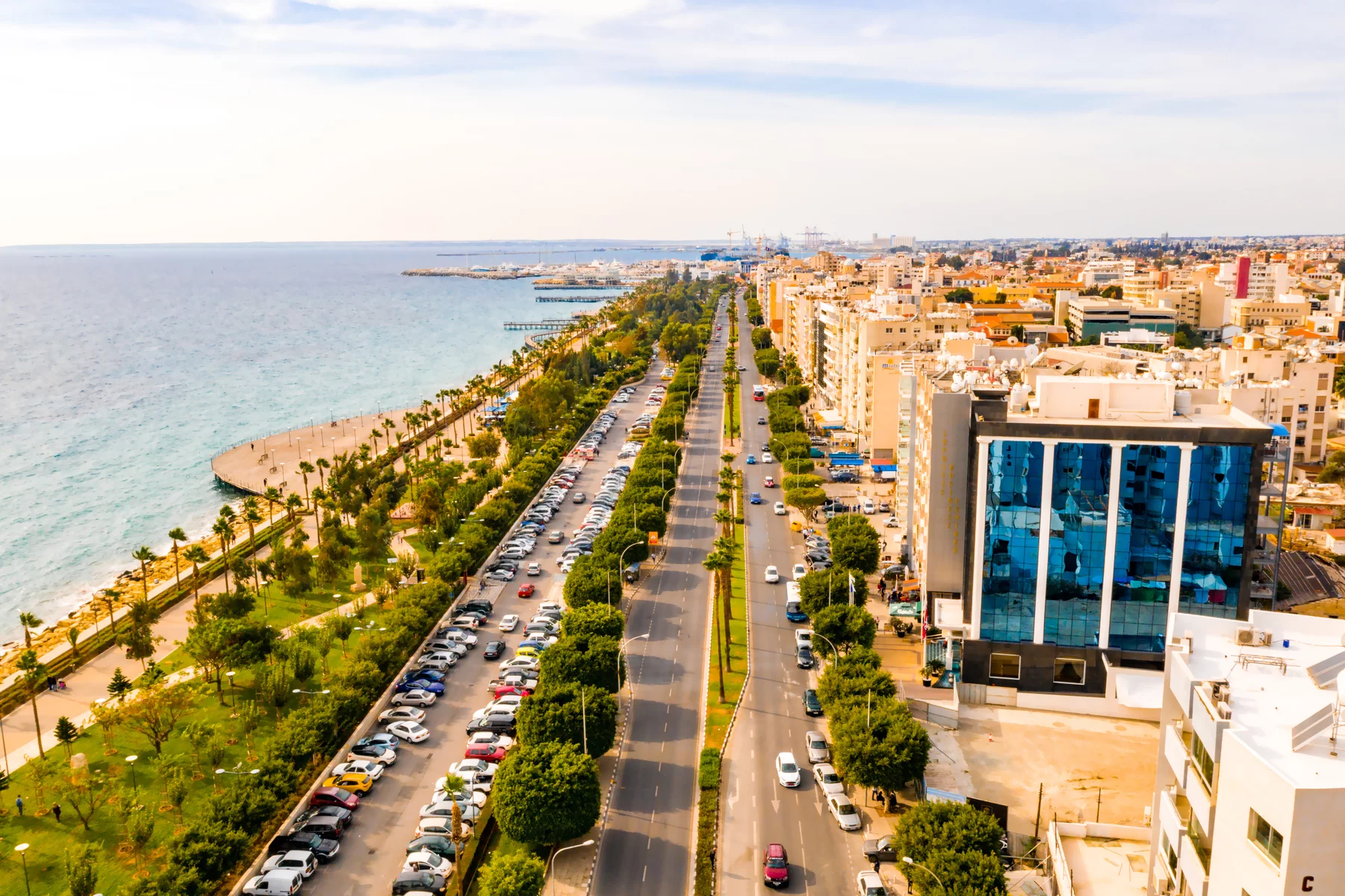
Obtaining Residence Permit and Citizenship in Northern Cyprus
You can obtain a residence permit (hereinafter referred to as the residence permit) for one year after the purchase of real estate. Every three years, the residence permit will have to be renewed, and after that, you can only submit ownership documents. This is where an executed and paid-for North Cyprus title comes in handy.
The residence permit allows you to use medical services and stay on the territory of Northern Cyprus without worrying about a visa. You can immigrate and eventually obtain citizenship, so buying property in North Cyprus could be the best place for such a purchase.
The Process of Buying Property in Northern Cyprus
The authorities of Northern Cyprus are trying to do everything to make foreign investments arrive more and more. But this does not mean that the state will not come up with new taxes to replenish the budget (e.g., a new municipal tax, which is paid in Iskele, north-east of TRNC). That's why there is even an opportunity to buy real estate online. Of course, there is a risk that you will buy what you see in the pictures, but if you do not have time to come to North Cyprus, you can trust the professionals. Of course, it will be safer to use the services of those developers, real estate agents, and lawyers with whom your friends have successfully cooperated.
At first, you draw up a deposit agreement, prescribe the terms of the deal, and pay the deposit by sending the money to the customer's current account. This is important. There is always a probability that the customer will run away with your money, but it is much lower than if you pay some third-party intermediaries.
Then you pay the entire amount in full and sign the sales contract. If you want, you can come to the island yourself. Or make a power of attorney for a lawyer, and he will sign the contract instead of you. Also, by power of attorney, a third party can sign the certificate of acceptance of the object.
When buying offline, you can choose a property on-site or remotely via the internet. Then, in either case, you make a so-called familiarization tour. If you like the property, you start discussing the terms of the deal, make a deposit, and the property is taken off the market.
After that, you hire a lawyer. This step is optional, as the TRNC government controls the real estate industry, but highly desirable. The lawyer will check the title of the property and determine whether the transaction is legal. He will competently draw up the contract of sale, help with the paperwork, or do everything himself.
The contract is registered at the land registry within 21 days of signing it. You pay the full amount, stamp duty and other taxes. Then you are waiting for the acceptance of the object with the handover of the keys.
If mistakes were made during construction or cosmetic repairs, you have the right to force the developer to eliminate them free of charge. Only then do you accept the keys and sign an acceptance certificate with the developer.
Popular Property Destinations in North Cyprus
Although Nicosia is the capital of Northern Cyprus, the most attractive cities to live in are Famagusta and Kyrenia. Why is this so? Both of these cities are large and located on the seacoast. Nicosia is landlocked.
Famagusta is home to the Eastern Mediterranean University, which has around 23,000 students. The purchase of residential real estate here means a guaranteed possibility of a long lease because students need somewhere to live. And the rental period is a minimum of one year. This is convenient; you do not need to look for tenants every month.
Kyrenia is just well located on a hill, so there are always people who want to live in an apartment overlooking the sea. Since this place is popular among tenants, the cost of rent here is high.
The cost of real estate is constantly growing because there is a demand for it. This confirms the liquidity of housing. The only object that experts do not advise as an investment is a studio apartment. There are already a lot of them. And 1+1 and 2+1 apartments are much less, which is valuable. In the residential complex under construction, the prices of apartments with an area of 50–70 square meters range from $90,000 to $150,000. A villa has better characteristics and will cost you $220,000–430,000.
Secondary housing is more expensive than new buildings. Finished apartments whose area is 80–100 square meters will sell for $160,000–190,000.
Property purchase and rental prices in different cities of Northern Cyprus
|
Nicosia |
Rent (€ Per Month) | Purchase (€ Per Metr) | ||
|
in City Centre |
1 br | 636 |
2 350 |
|
| 3 br | 519 | |||
|
Outside of Centre |
1 br | 1219 |
1980 |
|
| 3 br | 979 | |||
|
Famagusta |
Rent (€ Per Month) | Purchase (€ Per Metr) | ||
|
in City Centre |
1 br | 500 |
1380 |
|
| 3 br | 700 | |||
|
Outside of Centre |
1 br | 600 | ||
| 3 br | 700 | |||
|
Kyrenia |
Rent (€ Per Month) | Purchase (€ Per Metr) | ||
|
in City Centre |
1 br | 587 |
1000 |
|
| 3 br | 1020 | |||
|
Outside of Centre |
1 br | 470 |
1011 |
|
| 3 br | 812 | |||
|
Iskele |
Rent (€ Per Month) | Purchase (€ Per Metr) | ||
|
in City Centre |
1 br | 350 |
- |
|
| 3 br | 700 | |||
|
Outside of Centre |
1 br | 300 |
- |
|
| 3 br | 600 | |||
|
Engomi |
Rent (€ Per Month) | Purchase (€ Per Metr) | ||
|
in City Centre |
1 br | 500 |
2700 |
|
| 3 br | 1600 | |||
|
Outside of Centre |
1 br | 450 |
1500 |
|
| 3 br | 1200 | |||
|
Paralimni |
Rent (€ Per Month) | Purchase (€ Per Metr) | ||
|
in City Centre |
1 br | 400 |
2323 |
|
| 3 br | 800 | |||
|
Outside of Centre |
1 br | 300 | ||
| 3 br | 700 | |||
Sources: numbeo.com, knews.kathimerini.com, en.arcadia.com.
In addition to monitoring prices in the real estate market and learning details about how to get a residence permit when buying property in North Cyprus, find out if life itself is expensive. How much do the groceries cost that you can't do without? How expensive is gasoline, and how much do you pay for public transportation? According to surveys, an average of $700 is spent on food and other necessities if you live alone and are not gluttonous. In North Cyprus, fruits and vegetables are cheap, and the weather is sunny, which means you'll have plenty of energy and won't want to overeat.
Frequently asked questions
How many properties is one individual allowed to buy in Northern Cyprus?
What are the taxes that are paid when buying real estate properties called?
Can I rent or buy property in North Cyprus?
Can non-citizens of Northern Cyprus buy real estate there?
Author
I write articles on various topics for foreign audiences. For example, articles about real estate, emigration and so on.















